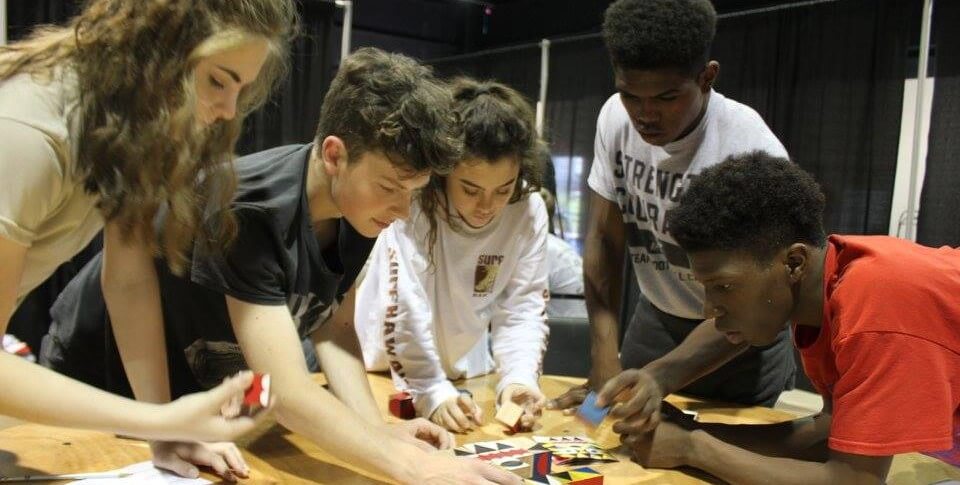As a new school year is underway in Maury County, students can expect a new approach to learning that is positively correlated to future job success and college preparedness according to recent studies.
Project-based learning (PBL) is defined as a student-centered teaching method that involves a dynamic classroom approach where students acquire deeper knowledge through active exploration of real-world challenges and problems. This new approach is another compelling way Maury County Public Schools is leading innovation in education.
The school system is pursuing project-based learning based on the many proven studies that demonstrate the effectiveness of this transition.
A 2013 study, 21st Century Skills and the Workplace, conducted by Gallup in partnership with Microsoft Partners in Learning and the Pearson Foundation, suggests a relationship between skills development, job success and school. It confirms the positive correlation between the development of competencies known as 21st century skills including critical thinking, real-world problem solving, self-regulation and the use of technology for learning, collaboration and communication to future job success.
The study found that subjects with a high level of 21st century skill development are twice as likely to have higher work quality.
21st century skills development is a major part of project-based learning as students are encouraged to utilize technology and collaborate with one another in preparation for a global work environment. Project-based learning is also the means in which STEAM education (Science, Technology, Engineering, Arts, Mathematics) is conducted—providing students with real-world learning experiences.
The 21st Century Skills and the Workplace study found that real-world problem-solving is a significant driver of higher work quality, and less than two-thirds of subjects reported developing this skill while in school. Only 14 percent report they used technology for collaboration in school, indicating that under traditional teaching methods, students are not developing the type of advanced technology skills needed in the workplace.
Project-based also has an impact on college preparedness. The 2017 Brandman University study The Impact of Project-based Learning on Collegiate Preparedness by Tonya T. MacMartin demonstrates the connection between skills acquired through project-based learning and college preparedness predictors such as the American College Test (ACT), Scholastic Aptitude Test (SAT) or Early Assessment (EAP) exams.
These exams have been identified as providing a strong indication of whether or not a student is ready for college by assessing hard skills like math and writing as well as cognitive strategies, contextual skills and awareness and the ability to link core ideas and organize information for faster recall—all skills that enable students to succeed in the college environment.
Succeeding in college by earning a degree enables students to earn 37 percent more over their lifetimes than those with only a high school diploma. The Center for Analysis of Postsecondary Education and Employment at Columbia University found that even a two-year associate degree enables women to earn 26 percent more and men 18 percent more than those without a degree.
Through Tennessee Promise, Maury County Public Schools students have the opportunity to receive two years of tuition-free college education through the state’s community college or technical schools. Project-based learning enables Tennessee Promise students, or those looking to pursue a four-year degree, to have a better chance at performing well during college and achieving a college diploma.
Maury County Public Schools Superintendent Dr. Chris Marczak instituted the Seven Keys to College and Career Readiness in 2016, a list of educational goals for each student to reach in order to achieve his or her full potential. Project-based learning aids in reaching a number of these keys like math proficiency, ACT performance and work-based learning or dual enrollment courses.
“As we make the transition from traditional, lecture-based education to project-based learning and STEAM education, we ask for support from the community including students, teachers, parents, mentors and community members,” said Marczak. “While this is a change from what many are accustomed to, the tremendous number of studies showing the benefits of project-based learning, and the impact on college and workforce readiness, are irrefutable.”
This change in education will also translate to economic benefits for Maury County. The gains in earning potential by students developing 21st century skills and enrolling in college means a more highly-skilled and educated workforce.
“We’ve seen many positive strides and achievements in Maury County through the Grow Maury education initiative,” said Maury County Chamber and Economic Alliance President Wil Evans. “Graduation rates and the college-going rate have increased; we’ve had record-breaking attendance and higher ACT scores. The transition to project-based learning will continue to boost our county’s academic achievement, providing economic benefits for all Maury County residents.”
To learn more about the Grow Maury initiative and how the county is improving education and the workforce, visit mauryalliance.com/grow-maury.

